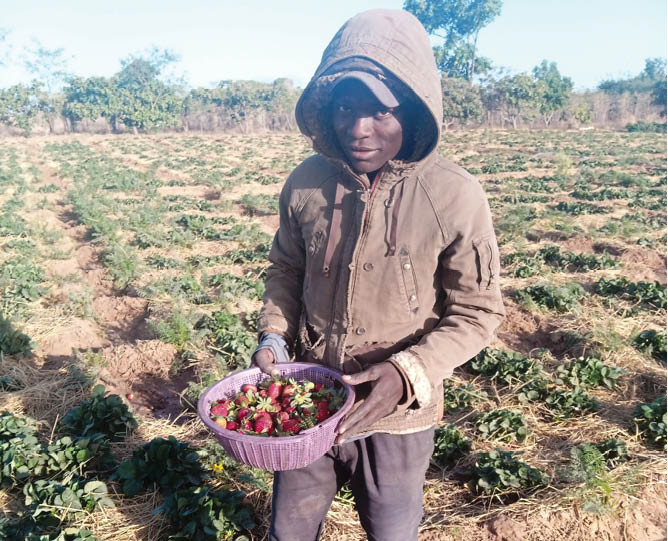Nigeria needs smallholder farmers for food self-sufficiency – expert
Nigeria and Africa as a whole should engage and build the capacity of smallholder farmers to achieve food self-sufficiency in agriculture, an agriculture expert has said. According to the Managing Director and Chief Executive Officer of Olam Africa, the Middle East and North America regions, Venkataramani Srivathsan during a panel discussion on BBC Agro webinar […]

Young Justine harvests his strawberry but many of the smallholders like him cannot afford to go out of Jos to search for market
Nigeria and Africa as a whole should engage and build the capacity of smallholder farmers to achieve food self-sufficiency in agriculture, an agriculture expert has said.
According to the Managing Director and Chief Executive Officer of Olam Africa, the Middle East and North America regions, Venkataramani Srivathsan during a panel discussion on BBC Agro webinar held recently, providing training and financing opportunities for the 80 million small-scale farmers on the continent would boost food security, food safety and job creation in the agricultural value chain.
He said, “The COVID-19 outbreak was a setback for the African continent. The global health crisis took its toll on the continent’s food supply value chain thereby disrupting vital agro activities which led to the escalated level of food insecurity.”
During a discussion on a BBC agro webinar event tagged ‘Agriculture – Africa’s Future’, he added that effective capacity-building efforts, access to revenue-boosting agro-technology, the assembly of robust irrigation infrastructure and the implementation of an effective micro-financing framework were necessary to help African smallholder farmers scale their operations, encourage massive youth participation in Agriculture and drive food security on the continent.
In his explanation, he said, “Olam works with 2.5 million smallholder farmers in Africa and is investing to assist them in creating wealth for their communities and respective economies at large. We invest in research to make high yielding seed available to the farmers. We are also tapping our global expertise in the agro value-chain to help the farmers adopt modern agro practices while extending loans to them through our participation in various anchor borrowers and out-growers initiatives across the continent.”
